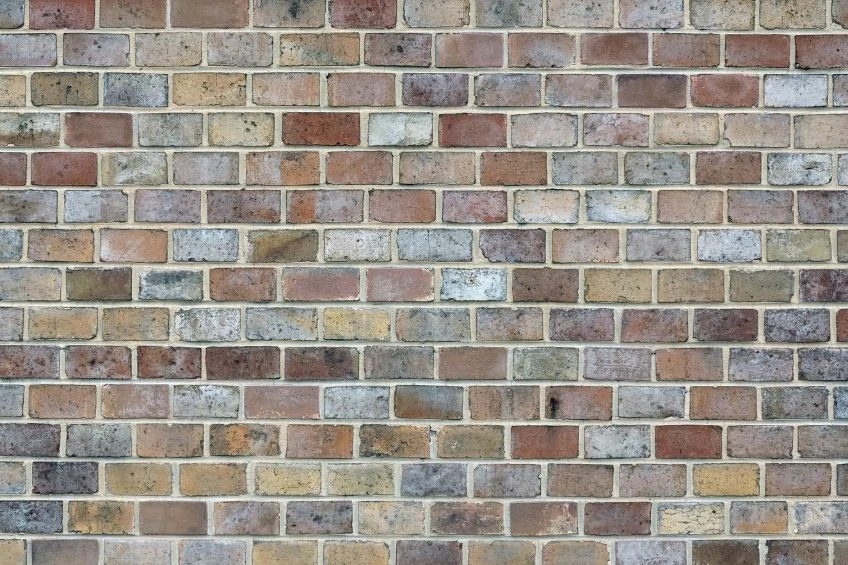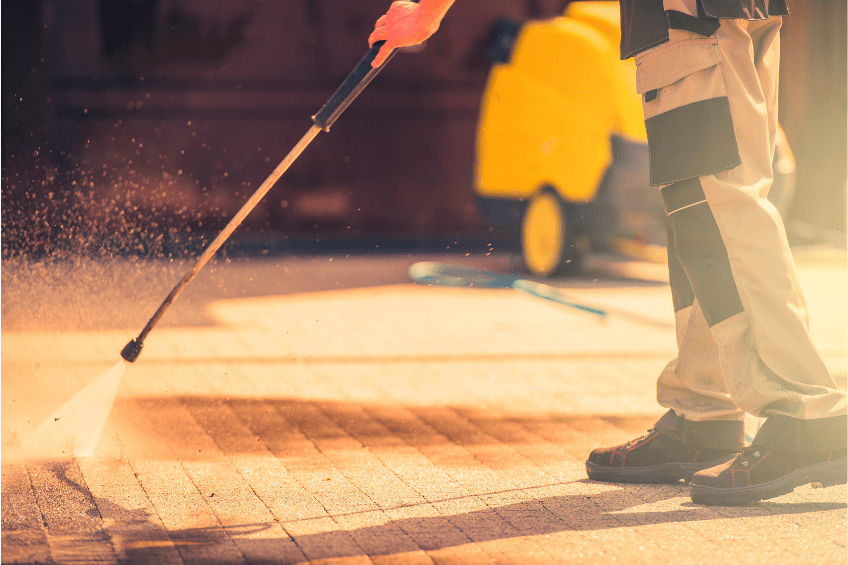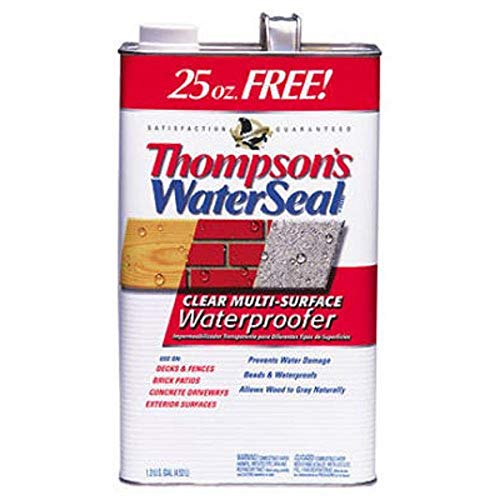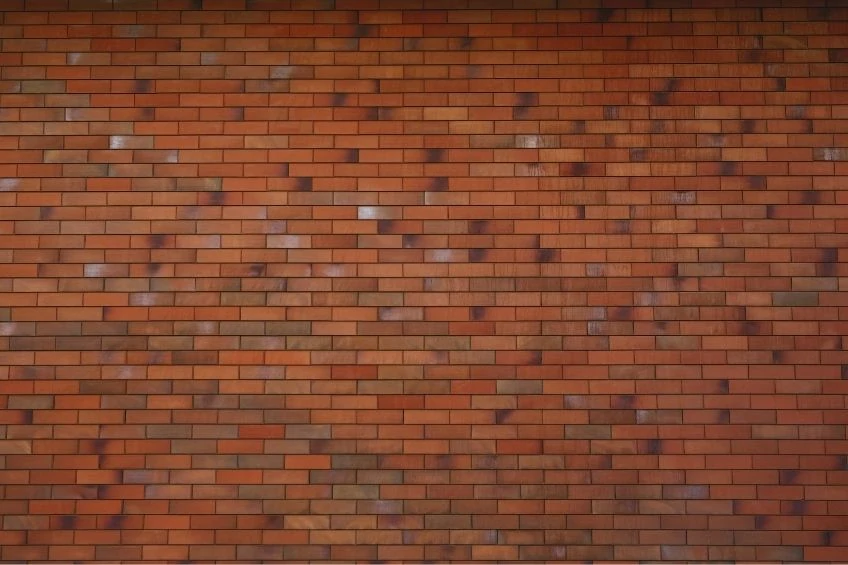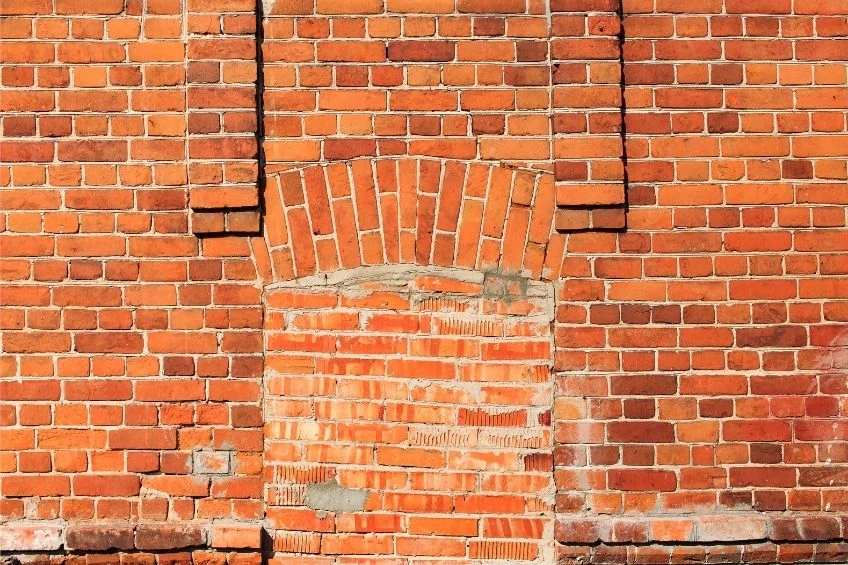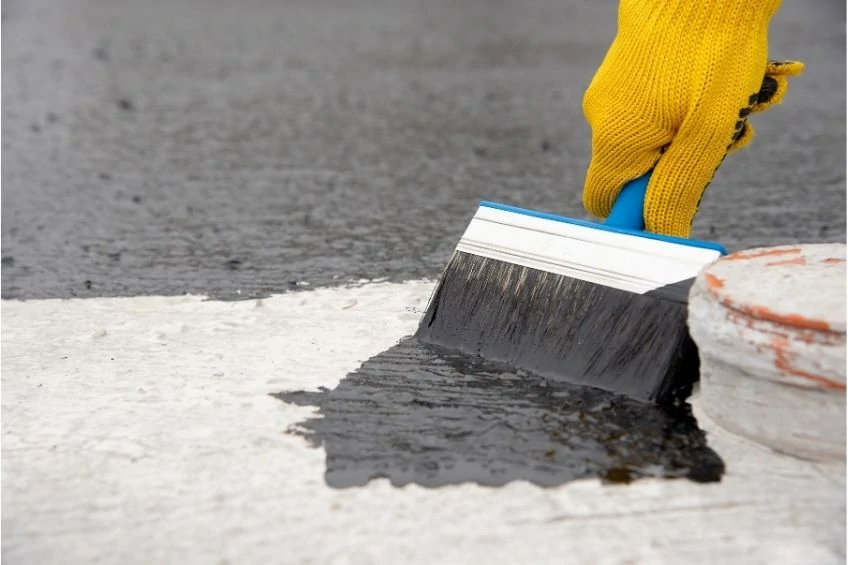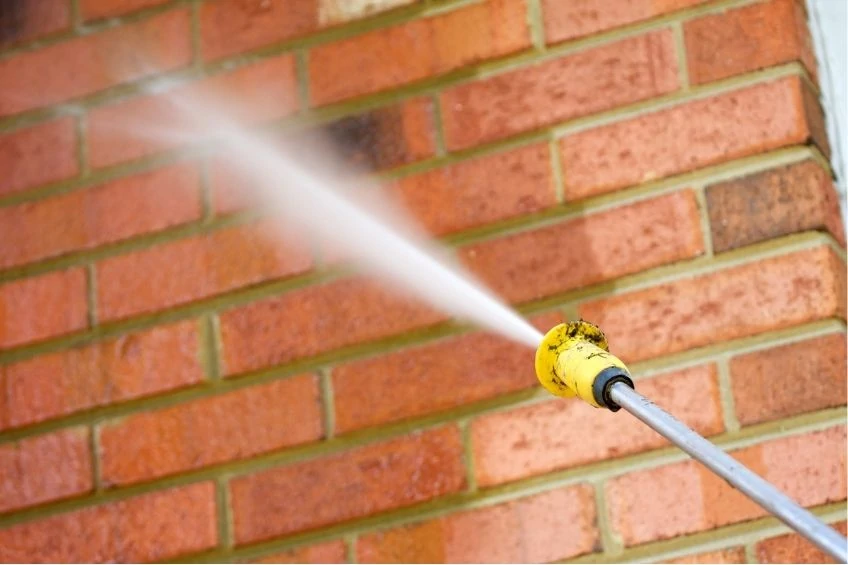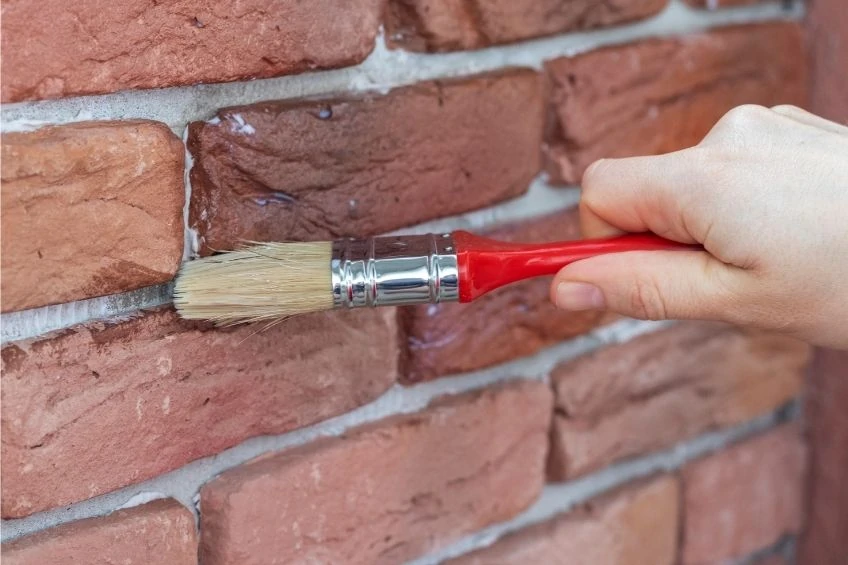Best Brick Sealer Tutorial – Everything About Sealing Brickwork
This post may contain affiliate links. We may earn a small commission from purchases made through them, at no additional cost to you. You help to support resin-expert.com
Masonry and brick are some of the most commonly used building materials. While brick walls provide a high level of durability and strength, there is still the risk of these surfaces being damaged by weather. Water seeping into brick and concrete can lead to cracks and damage – something that can be avoided by using a brick sealant. The best brick sealer will provide an extra layer of protection for a safer, longer-lasting finish. Interested in finding the best masonry sealer for your project? Follow our complete guide on brick wall sealers below.
Table of Contents
What is Brick Sealant?
A brick sealant is a special product used to protect surfaces built from brick against moisture penetration. Bricks can be made from clay, concrete, ceramic, stone, and more. When these materials are exposed to harsh weather conditions, they will slowly start to degrade over time. This mainly includes water penetrating into the brick or concrete which cracks and breaks the brick.
To prevent this damage from happening, a brick sealant is applied over the built surface. This brick wall sealer adds a layer of protection by creating a water-repellent coating. This helps to maintain the structural integrity and appearance of the brick. The best brick sealer is clear and can either form a layer over the top of the brick or penetrate into the pores. You don’t notice the sealer, but it will help to keep unwanted moisture out.
Types of Brick Sealers
While the best brick sealers all serve the same common purpose, there are various different types available. Before choosing which brick waterproofer you will be using for your project, it is important to understand the different styles available.
Penetrating or Sealing
One of the first key differences between the best brick sealers is that some sit on top of the masonry, while others are absorbed by the porous material. Penetrating sealers are applied to the surface of the bricks, and they sink deeply into the pores of the surface. This prevents any water from entering those pores which helps to protect the bricks from damage. These types of sealers are not visible, but they add a level of internal protection.
Then you get sealers that sit on top of the masonry, creating a strong, water-repellent layer. These types of sealers dry to a hard and durable finish. These are clear brick sealers, so you can still see the coloring of the surface underneath. However, sometimes they can dry to a certain sheen – such as a shiny, glossy coating.
Generally speaking, the best brick sealers for outdoor use have a certain level of penetration and absorb fairly deeply into the surface. Indoor brick surfaces are often best sealed with a solution that creates a type of coating over their surface.
What the Sealer is Made Of
The best brick sealers come in a variety of different substance options. First of all, you can choose between water-based products or oil-based products. The basic rule of thumb is that oil-based products are more toxic, more expensive, and take longer to dry. However, they are more durable and long-lasting. Water-based options are safer to use, easier to clean up, and more affordable, but they are not as durable.
When it comes to brick waterproofers, you can choose between acrylics, silicones, urethane coatings, epoxy coatings, and more. Be sure to read the brick sealer reviews of each product, and find a solution that is most suitable for the surface you are working with.
The Best Brick Sealer
Finding the best brick sealer for your project can seem like a bit of a tricky task as there is quite a range of different options available. We have selected some of the top-performing products when it comes to sealing brickwork in order to make the choice easier for you. Take a look at our brick sealer reviews below.
STORMDRY Masonry Protection Cream
This premium-strength waterproofing cream is the ideal choice for all kinds of walls and masonry. The solution can be used to protect brick, stone, cement, mortar, sandstone, concrete, and granite. Once applied, this product penetrates deeply into the masonry, providing an invisible water-repellent barrier. This can be done in a single coat application.
Once applied, this brick wall sealer is fully breathable. All masonry surfaces can dry easily as it allows any moisture to escape. Once applied, the sealer is completely colorless, allowing the natural appeal of your masonry to still show through.
By keeping the bricks dry, this product also helps to minimize heat loss on brick walls. All you need to do is simply apply a single coat of this sealer, and you can reap the benefits of a well-protected, water-repellant brick wall.
- Premium high-strength wall waterproofer
- Easy to apply penetrating damp treatment
- A colorless and fully breathable brick sealer
Pros
- Only requires a single coat
- Easy to apply
- Provides an efficient water-repellent solution
- Long-lasting and doesn’t need to be reapplied every year
- Dries completely clear
Cons
- There are cheaper options available
KILZ Interior/Exterior Liquid Masonry Sealer
This is a really versatile masonry sealer by Kilz that can be used both indoors and outdoors. This sealer can protect brick, concrete, and all other masonry surfaces. It dries to a wet look finish and completely preserves and maintains the color. Over time it won’t fade, yellow, or change color.
The acrylic-based formula isn’t only appealing thanks to its high-gloss appearance over all types of masonry surfaces. This sealer is really effective in keeping moisture out. The formula dries within an hour and is really easy to apply. It can coat and protect finishes by being sprayed on, brushed, or rolled. Depending on the texture and material, each gallon can cover 250 – 400 square feet. This also means that it is a top choice when it comes to value for money.
- KILZ Interior/Exterior Sealer is high-solid, non-yellowing acrylic-based formula
- The sealer dries within an hour and can be recoated in 4 hours
- KILZ Liquid Masonry Sealer can be brushed, rolled, or pump sprayed on
Pros
- Dries to a glossy, wet-look finish
- Suitable for interior and exterior use
- Won’t fade, yellow, or change color
- Very easy to apply
- Good value for money
- Works on a wide range of materials
Cons
- Not suitable for very high-moisture areas
- Some people don’t enjoy the glossy finish
RAIN GUARD Micro-Seal Silane/Siloxane Repellent
This sealer completely restores, protects, and extends the life of any masonry surface. This can be both horizontal or vertical surfaces. A superior level of protection is achieved through a high-performance hydrophobic coating. This concrete sealer is water-based. It won’t change the appearance of the masonry below it or leave a layer of film. Instead, the formula is deep penetrating and fully breathable. This means you get a no-sheen, non-yellowing formula.
This is a completely penetrating sealer to provide better protection. The incredibly versatile formula can be used on wood too. The sealer inhibits mold and mildew and is super long-lasting. Overall, this is one of the best brick sealers thanks to its versatility and excellent protection.
- A silane/siloxane repellant water sealer
- A no-sheen, non-yellowing water-based sealer
- Offers a 100% penetrating coating for superior resistance
Pros
- Suitable for a very wide range of porous surfaces
- Doesn’t leave a film or alter the appearance of the brick
- A deep penetrating, breathable formula
- Inhibits mold and mildew
- Easy to apply
- Good value for money
Cons
- Some people prefer a glossy finish
THOMPSONS WATER SEAL Clear Multi-Surface Waterproofer
When it comes to brick sealer reviews, Thompson’s Water Seal is always a top name to include. This brick waterproofer can be used on various different surfaces to prevent water damage. It can be applied to masonry, brick, decks, concrete, fences, and more. Because this product dries to a completely clear finish, it is easy to use over any surface without changing the natural aesthetic.
Thompsons Water Seal Clear Multi-Surface Waterproofer has been designed for exterior use only. This product has a particularly low VOC formula which makes it safer to work with when compared to many other options. This sealer does a brilliant job at protecting all kinds of surfaces from water and harsh weather conditions.
- Beads and waterproofs a wide variety of surfaces
- A low VOC formula for safer applications
- This brick sealer is suitable for exterior use only
Pros
- A good value for money brick sealer
- Suitable for use on multiple surfaces
- Low VOC formula
- Dries clear
Cons
- The tin can is not the ideal packaging for liquid products like this
- The brick sealer is not the easiest to work with
Considerations for Choosing the Best Brick Sealer
We have already established that there are various different options to look out for when choosing the best brick sealer. When you seal brickwork, every scenario is unique and will require a product that best suits the specific job. Here are some important considerations to bear in mind when looking for the best brick sealer.
The Surface You Will Be Working On
The best masonry sealer should be able to work over various different surfaces. Make sure that whatever product you choose is compatible with the area you plan on applying it. Different forms of brick and masonry are made up of different materials, so this is important. Some of the most versatile brick sealants can be used on tiles, concrete, stucco, wood, stone, cement, and so on.
The Finish
You will pretty much always find clear brick sealer products. However, different options offer unique finishes and sheens. Some products penetrate the masonry and don’t look like there is any sealer at all. Some form a glossy, wet look film. Some are matte, some are shiny, and others form a visible clear film. Make sure that you understand the finish and that it will work with your surface.
Interior or Exterior
When sealing brickwork, an obvious consideration is whether you are working indoors or outdoors. The best brick sealers are not always suitable for both purposes. A brick sealer exterior product will be clearly labeled as such. These products are a lot more durable and built to withstand harsh direct weather conditions. Besides heavy rainfall, they should also not deteriorate after long exposure to UV rays.
Interior brick sealers are not as strong. These products are designed to protect the brick wall against water stains, spills, mold, mildew, and so on. However, if they are used outdoors, they may weather and deteriorate fairly easily. Brick sealer exterior products and interior versions are very different, so always bear this in mind.
Viscosity
How thick or thin the sealer is will make a big difference when applying it. Thin sealers are excellent for spraying, but they can be very difficult to paint on with a brush. Thick sealers are also more challenging to apply over horizontal surfaces, while very thin ones may cause runs and drips on walls. Check out the brick sealer reviews on this, as it can be an important deciding factor.
Strength
Of course, the brick sealer will need to be tough and long-lasting in order to provide solid protection. This should be suitable for the surface you are applying it to. For example, acrylic sealers are one of the best choices for interior projects, however, they may not be strong enough for use on floors that involve heavy wear and tear. For this, you should use a more durable oil-based sealer.
Number of Coats
Some sealers only need a single coat for them to work properly, while others may require two, or even more coats. This is an important consideration for two reasons. On the one hand, fewer coats make the application process much easier – especially if you are covering a very large area. A single application is also much cheaper because you need to use half the amount of sealant. This is something to know before buying your sealant because it will help you to determine how much you need.
How to Seal Brickwork
Now that we have covered the best brick sealer reviews and know what to look out for in these products, it’s time to learn how to apply them. Sealing brickwork is an easy task that can be done at home without having to call in a contractor. Just follow the simple step-by-step method below, and you will be able to seal brickwork without any issues.
Check the Weather
The first step is to check the weather forecast to make sure that you have a dry period ahead of you. You will need to work on a day that does not have any rainfall or extreme tem[eratures. The ideal temperature would be between 40 to 90 degrees Fahrenheit. Very hot weather could cause the sealant to blister when applying it.
Prepare the Brick Surface
Now you need to get the bricks ready for applying the sealer. Start by trimming away any grass or weeds that are rising up over the bricks. Pull any vines off of the bricks. All of the bricks should be exposed for easy application. Then you should remove any paint from the bricks with a paint scraper.
If there is any mold or mildew, apply a mildewcide to clear this up. Then you will need to make sure that the entire surface is clean and free from any dirt or marks. This is best done with a high-pressure cleaner. Work from the top of the bricks down to the bottom, making sure that the whole surface is clean. You want to do this to make sure that the pores are clear and will be able to take sealer when it is applied.
The final step of preparation is to cover up any areas you don’t want the brick sealant landing on. You can use a tarp, newspaper, tape, or plastic sheeting to do this. Cover any window frames, doors, gutters, floors, shelves, and so on.
Apply the Brick Sealant
Applying the sealer can be done in three possible methods. These are using a sprayer, a brush, or a paint roller. We recommend using a sprayer to get the best brick sealer finish. This makes the process much faster and easier, and it allows you to achieve a perfectly smooth coating. Applying the sealer with a brush or roller is more labor-intensive. It also results in a thicker layer of sealer being applied, which can cause drips and runs.
If using a sprayer, fill it up with the brick sealer and start to apply it to the bricks. Always work from the top down and use a constant motion while spraying. If you pause in one place, you will get a buildup in that spot which can cause the sealer to run. Rather, keep moving your hand as you spray to ensure a completely even application right the way across. A good tip is to use a paint roller to go over the sealer after you spray it. This is a bit more work, but it allows you to really get the sealer into the pores of the surface.
Once the entire area has been coated, you can leave it to dry. Some products may require you to apply a second coat after this, while others only need a single application. Be sure to check the manufacturer’s guidelines on this.
Drying
Now you just need to leave the brick sealer to properly sink in and dry. The time this takes will depend on the product you are using, the surface you applied it to, and the outside temperature. The sealer could take anywhere between 4 to 12 hours to dry. However, it would be best to leave it for 48 hours before you touch or use the surface. After this time, you can paint your brick wall.
Tips and Tricks for the Best Brick Sealer
Getting the best brick sealer finish will depend on how you apply it, the surface you are applying it to, and the product you are using. When applying a brick wall sealer, there are a few helpful tricks to follow to get a perfect application. We have outlined these below.
- Before applying a brick sealant, you should wait at least 28 days after construction has finished. This gives you enough time to allow the alkalinity in the mortar to return to neutral. This is important for effective sealing.
- After cleaning the surface of the bricks, make sure that they are fully dried before moving ahead. Wet bricks will not adhere as well.
- We recommend having a paint roller on hand while you spray on the sealer. This allows you to smooth out any drips or runs. It also lets you press the sealer deeper into the contours and pores of the bricks.
- Always apply the sealer evenly in thin layers, and don’t let it pool. You will need the coating to be completely even for it to dry to a clear, smooth finish.
- Acrylic sealer is one of the best options for use on walls, but it is not recommended for floors. When sealing brickwork flooring, you will need a product that is more durable and can hold up against heavy use.
- While we recommend applying the clear brick sealer with a sprayer, you can also use a paintbrush for smaller jobs. This is also very useful for interior projects, as there will be no overspray and less mess.
- Always remember important safety considerations. When using a sprayer, there will be fumes in the air. Even if you are working outside where you don’t have to worry about air ventilation, there is still the risk of inhaling brick sealer particles and fumes. For protection against this, you should wear a respirator mask when spraying. We also recommend wearing latex gloves and possibly safety goggles when using cleaning chemicals and preparing the bricks for sealing.
Frequently Asked Questions
How Long Will Brick Sealant Last?
This depends on the product used and weather conditions. Typically, the best brick sealers should last around 7 to 10 years before having to be reapplied. This gives you a long life of waterproofing.
Are Brick Sealers Necessary?
Bricks are porous materials that can absorb water and salt resulting in cracks and damage. Applying a brick sealer waterproofs the bricks and prevents this damage from occurring. Particularly in very wet conditions, using a brick sealant is important.
What is a Siloxane Brick Sealer?
This type of brick sealer deeply penetrates into the masonry to block off the pores. This creates a special barrier against moisture from entering the bricks.
How Long Does Brick Sealer Take to Dry?
This depends on the product you are using and the weather conditions. Some sealers may dry to touch in 4 hours, but it is best to leave them completely for 48 hours before using the brick surface.
Finding the best brick sealer will help you to maintain a strong, long-lasting, attractive brick surface. We hope that our guide above has prepared you with everything you needed to know about these sealers.


